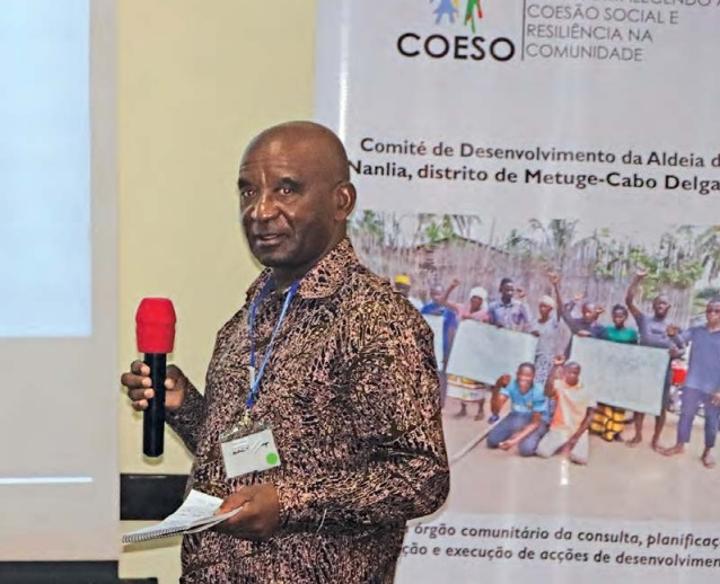Africa-Press – Mozambique. More than 13,000 families internally displaced (IDPs) as a result of the terrorist attacks in Quissanga, in Cabo Delgado province, continue to live in shelters in the five temporary accommodation centres created by the authorities in the district of Metuge.
This is due to their refusal to be resettled permanently elsewhere.
This information was shared last week by Metuge administrator Valério Nandanga in Pemba during the presentation of a report on the experience of the local government in the process of managing and assisting IDPs, within the scope of a stakeholder conference on strengthening social cohesion in conflict-affected communities in Cabo Delgado.
The more than 13,000 families are still living in temporary shelters in the 25 de Junho, Nangua 1 and 2, Manono and Namuapala accommodation centres.
“These five temporary accommodation centres, in the main village of Metuge district, exist because the displaced population there has shown no desire to go to the permanent resettlement centres,” Nandanga explained.
According to the administrator, the district in 2019 received its first group of IDPs from the administrative post of Mucujo, in Macomia, followed by others from Quissanga, Meluco, Mocímboa da Praia, Palma, Mueda and Nangade.
To date, 39,519 families, comprising 164,365 people, are hosted in the five temporary accommodation centres, while 9,311 families (49,252 persons) have been resettled in 16 permanent centres, the rest being housed with family and friends in the district headquarters village and in Mieze.
Nandanga said the intervention of the government and partners in the management of assistance to the displaced since 2019 had greatly improved the life of these citizens compared to when they arrived at Metuge.
“Right now, there is social stability for the displaced and resettled families in all 16 centres. The eagerness of this social layer to improve their housing and participate in agricultural activities for consumption and the sale of surplus is palpable,” Nandanga said.
The normalisation of the security situation in some home districts, especially Quissanga, has drawn 8,653 families back to their areas of origin, although no formal command has yet been given.
As regards the social cohesion in the Metuge communities, Nandanga said that, thanks to the creation of Village Development Committees (CDA) by the Aga Khan Foundation and partners, it was easier to host and live with the displaced.
According to reports, it was the CDAs which from the outset, and without specific guidance from the authorities, received the first groups of IDPs, accommodated them in their homes, providing space for housing and agriculture, among other solidarity measures, Ana Bela, one of the programme facilitators in Metuge said.
The multi-stakeholder conference on strengthening social cohesion in conflict-affected communities organised by the Aga Khan Foundation and MASC with funding from the European Union aimed to promote inclusive and participatory dialogue on key issues affecting the internally displaced and host communities.
The meeting was attended by the head of the Cabinet of the Governor of Cabo Delgado, and representatives of the EU, the Aga Khan Foundation, civil society organisations and the displaced and host communities.
For More News And Analysis About Mozambique Follow Africa-Press






